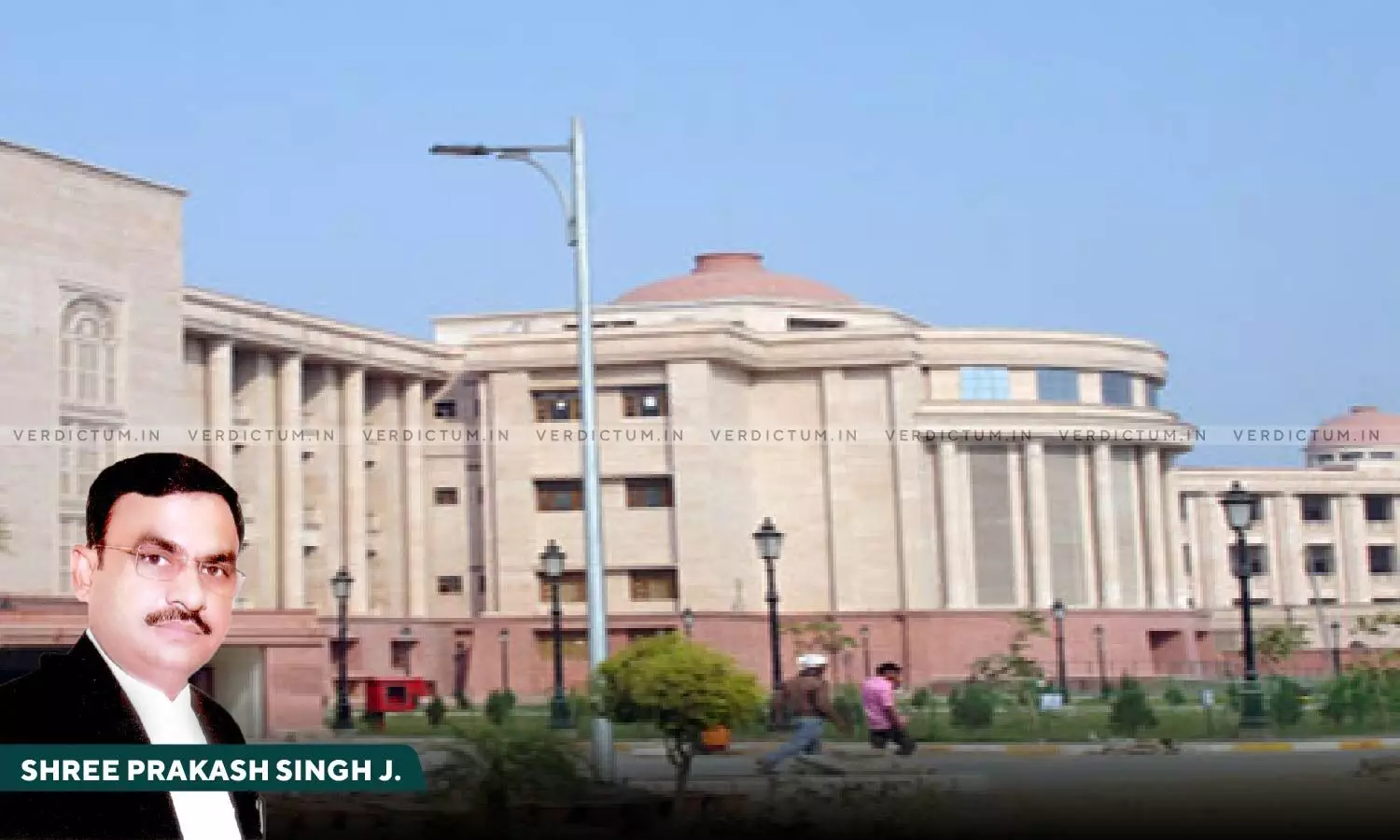
If Disobedience Is Outcome Of Compelling Circumstances Creating Impossibility To Comply With Order, It Is Not Willful Contempt: Allahabad HC
 |
|The Allahabad High Court held that if disobedience is the outcome of some compelling circumstances creating impossibility for the contemnor to comply with the order, the same cannot be termed as willful or deliberate contempt.
The Lucknow Bench of the Court held thus in a contempt application preferred for alleged non-compliance of the judgment and order in a writ petition.
A Single Bench of Justice Shree Prakash Singh observed, “It is trite law that the willful and deliberate defiance of the order is pivotal aspect in so far as adjudicating the contempt proceedings against a contemnor. It is the factual matrix, which can be interpreted and looked into, to come to a final conclusion that is there any intention of the alleged contemnor to commit defiance of any order or direction passed by the court. If in a case, the contemnor succeeds to demonstrate that if a particular time or period prescribed for compliance of the Judgment and Order is disobeyed for some reasonable causes or those were not within the approach of such contemnor or such disobedience is the out-come of some compelling circumstances which created impossibility for the contemnor to comply with the order, the same cannot be termed as wilful or deliberate contempt, though this could be considered on the facts of each and every case.”
Advocate L.P. Mishra represented the applicants while Senior Advocate Upendra Nath Mishra represented the opposite parties.
Brief Facts -
The petitioners were appointed as Junior Engineers on work-charge basis in the years 1984, 1985, and 1987, in the Lucknow Development Authority, and in the year 1992, they approached the High Court by preferring several petitions and these were heard together. The final judgment and order was passed by the court in 1992, whereby the writ petitions were allowed, while directing the Lucknow Development Authority to pay minimum of the pay-scale to the petitioners as was being paid to the regularly appointed Junior Engineers, Clerks and Class-IV employees, were getting at that point of time.
As many as 7 directions were issued, but, so far as the last direction in the Judgment and Order which was allegedly not complied with, by the opposite parties, was to the effect that ‘to take step to obtain regularization of the services of those petitioners within nine months, if the posts were within the purview of Public Service Commission.
The High Court in view of the above facts noted, “When this court examines the matter on it’s facts and law that whether there is any deliberate or wilful disobedience on the part of the opposite parties?; it borne out that there was no rule or regulation with respect to regularization of the services of the petitioners as they were not appointed on adhoc basis but, they were working as work-charge or daily wages and therefore, regularization of their services could have been done after the amendment in the rules and the petitioners have failed to substantiate that no exercise or any steps are taken or carried out, for regularization of their services. Number of letters were written by the State Government to the U.P. Public Service Commission, by the time of preparation of the select list and the effort of the State Government is apparent regarding substantive exercise for regularizing the services of the petitioners.”
The Court said that the petitioners have also failed to substantiate that the opposite parties have intentionally not considered the claim for regularization of their services and they have also failed to demonstrate that the exercises, which were being carried out by the State Government including the preparation of select list, as well as the litigations challenging the action of the State Government while proceeding with the regularization of the services of the petitioners, were not in their knowledge.
“While the direction in the order dated 19.08.1992, the words ‘taking steps’ is said meaningfully, as the same clearly encapsulates the intention and cautiousness of the writ court regarding the time taking process of regularization. At the same time, the writ court was also cautious enough regarding the nature of the posts, which are under the purview of U.P. Public Service Commission and therefore, the time which was consumed either in several set of litigations or in the exercises done to ease out the process of regularization, enough to show that the element of deliberate or intentional disobedience is missing in the present matter”, it added.
Accordingly, the High Court dismissed the contempt petition.
Cause Title- Rajendra Singh And Others v. Prabhu Narayan Singh V.C. L.D.A. Lko. And Another (Neutral Citation: 2024:AHC-LKO:26783)
Appearance:
Applicants: Advocates L.P. Mishra, Sharad Kumar Srivastava, and Lalta Prasad Misra.
Opposite Parties: Senior Advocate Upendra Nath Mishra, Advocates Shobhit Mohan Shukla, Madan Mohan Pandey, Neel Kamal Mishra, and Ratnesh Chandra.